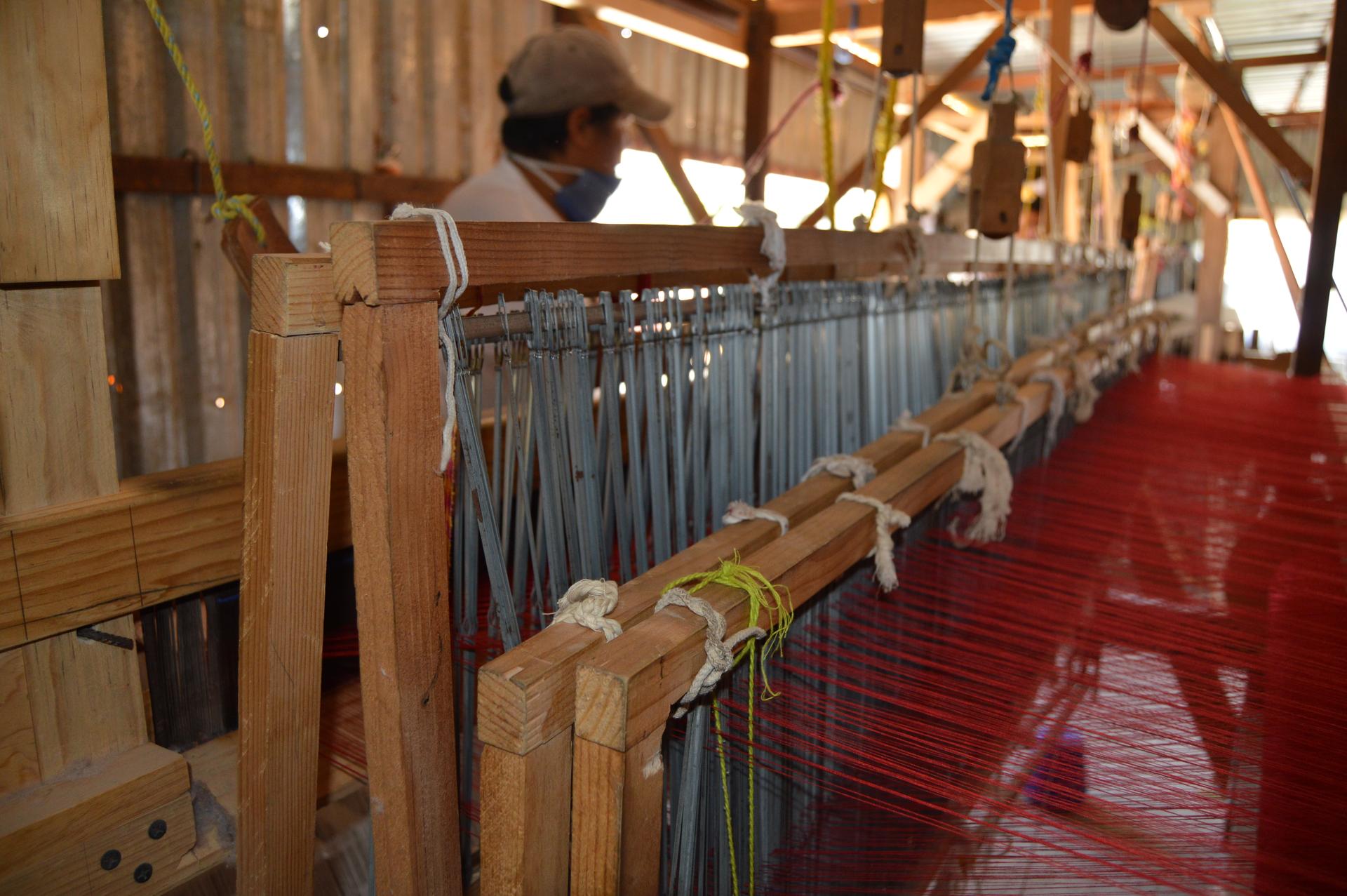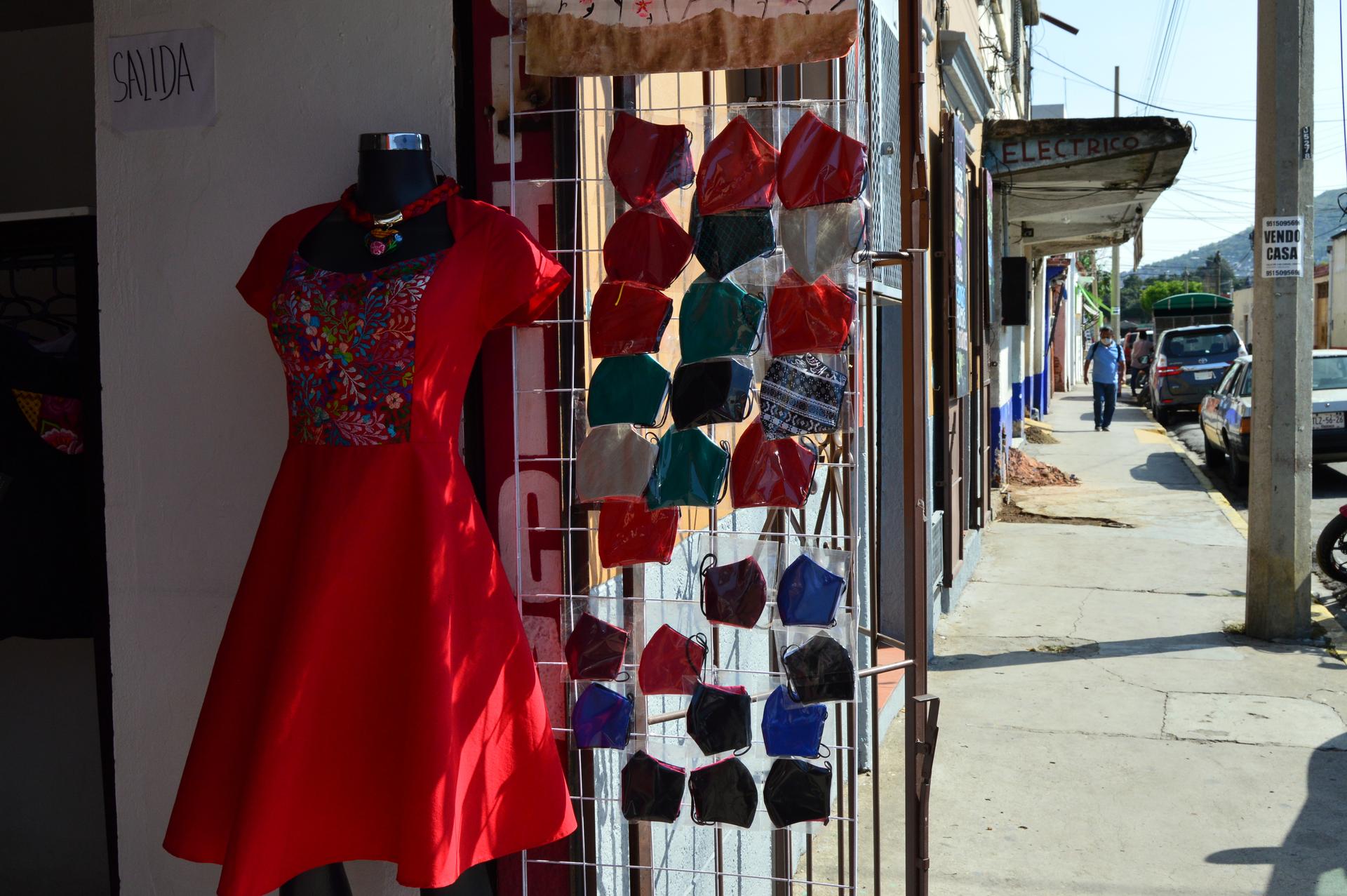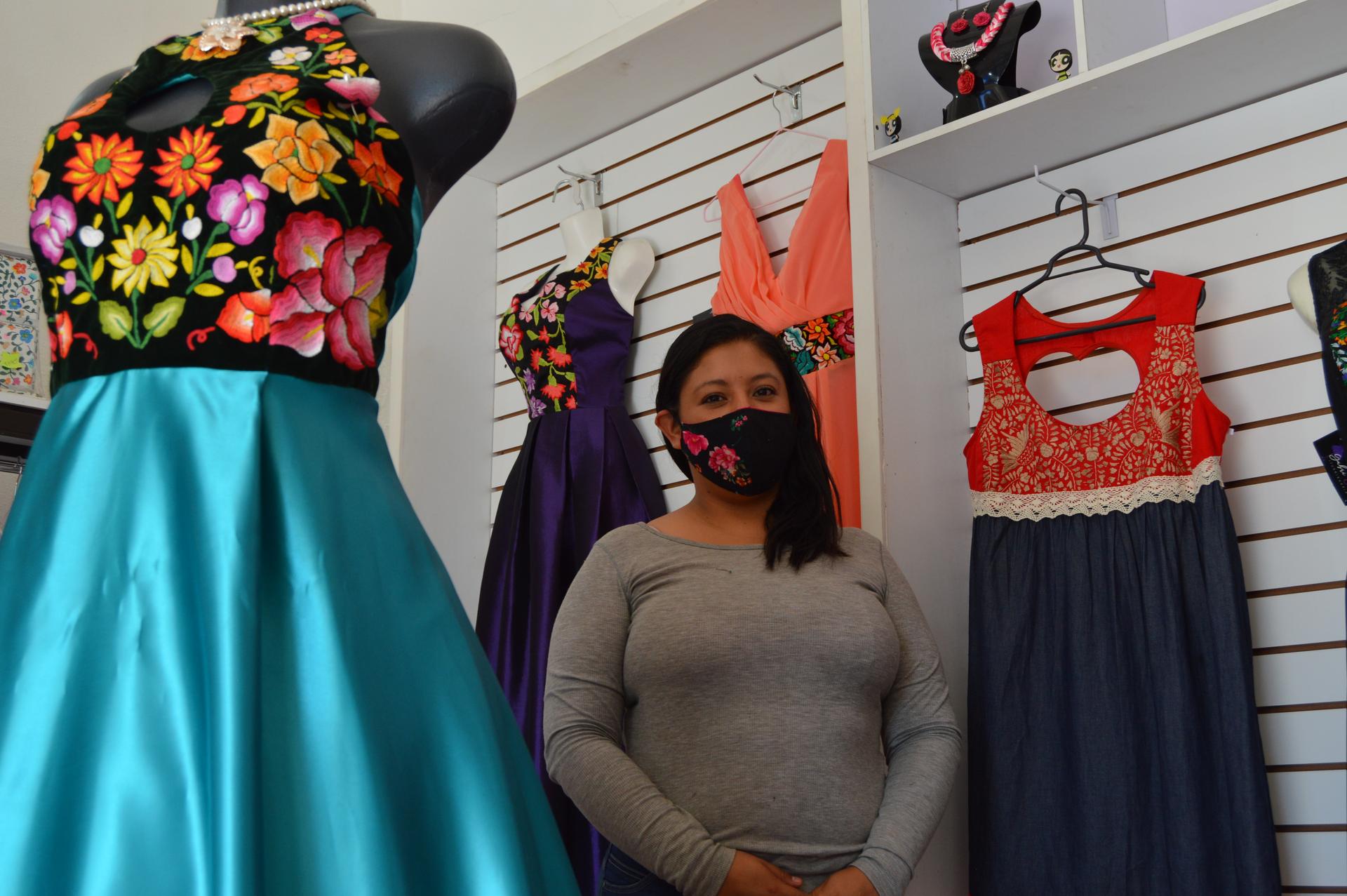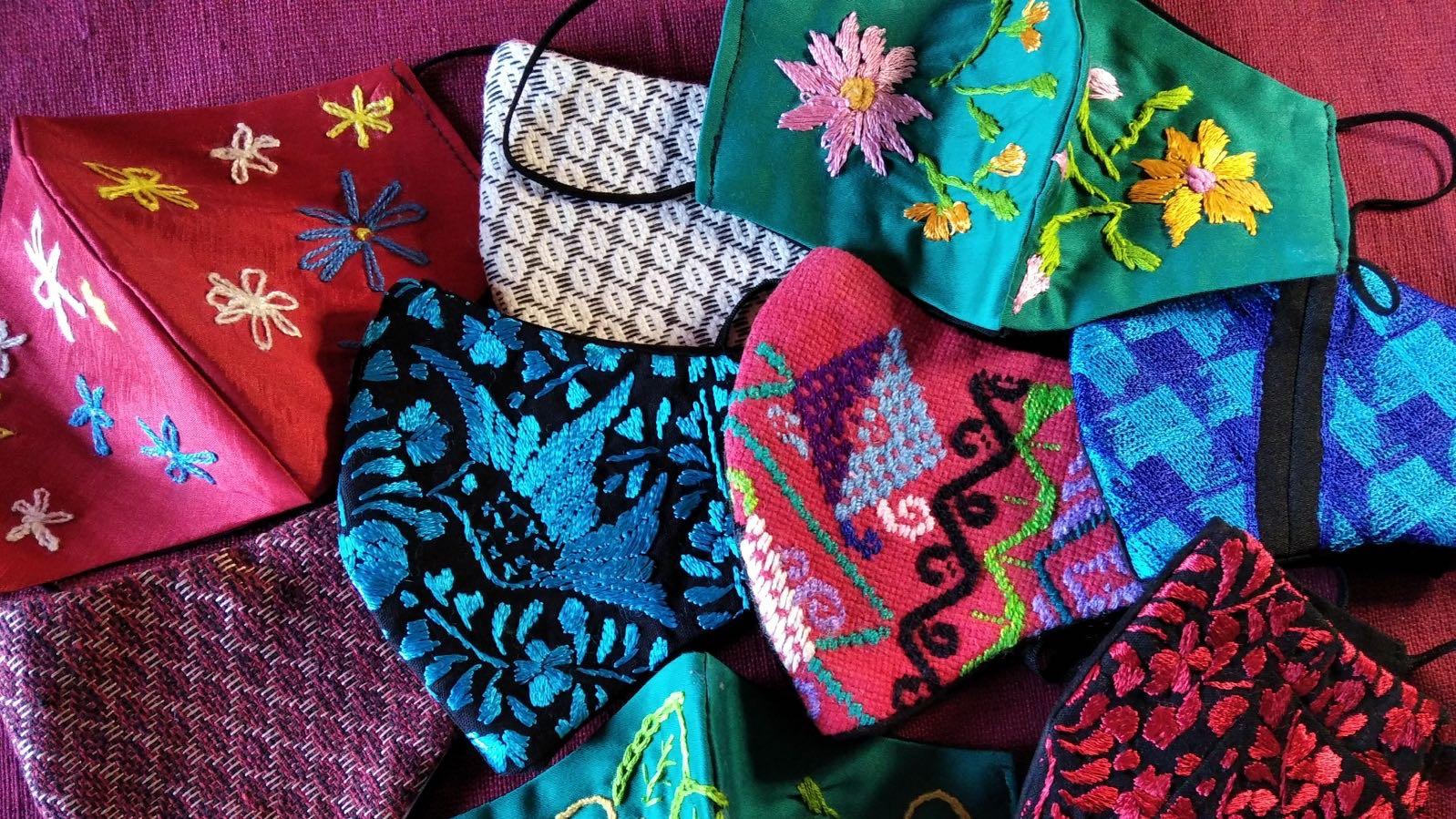Mexican artisans make face masks to stay afloat amid coronavirus
The rhythmic click-clack of elaborate floor looms in motion has long been part of the soundscape in the Oaxaca City suburb of Pueblo Nuevo, Mexico.
The southern Mexican state of Oaxaca is known among collectors for its high-quality handicrafts, especially when it comes to textile art.
In Pueblo Nuevo, approximately 150 people work in around 30 family-run workshops, according to locals.

But the looms aren’t nearly as active as they were this time last year. The pandemic has hit the cottage industry hard. Tourism has ground to a halt, cutting artisans off from international clients, and sales have plummeted.
However, there is one piece of textile in demand these days.
“Face masks have helped us to survive, maintain and provide support for the young men and women who work with us.”
“Face masks have helped us to survive, maintain and provide support for the young men and women who work with us,” said Álvaro López Jiménez of the family-run El Manantial textile workshop in Pueblo Nuevo, which opened 25 years ago.
Related: Mexico City tortilla shop provides free Wi-Fi for kids to access virtual school
The workshop typically manufactures 100% cotton bedspreads, tablecloths, curtains and shawls. It shifted to face mask production after Álvaro’s brother, José López Jiménez, returned from a major handicraft expo in mid-March without having sold a single item of the inventory he hauled to the state of Guanajuato.
Around the same time, clients that resell the workshop’s textiles in tourist hubs like Cancún and Puerto Vallarta suspended orders until further notice.
“There were news reports then of mask shortages and panic buys,” recalled Álvaro López Jiménez. “That’s when we started making prototypes and models for face masks and they’re what got us through the toughest months of May and June.”
Some are plain, others machine-embroidered; and they all feature a high thread count.

They sold their first batch of masks to the state government. Then, local hospital workers started buying them. They’ve since sold 3,000 face masks. Álvaro López Jimenez says those sales allowed his family to retain all 30 employees, though at reduced hours.
Related: First-class swag, airplane meals, ‘flights to nowhere’: Airlines innovate amid pandemic
Losing out on in-person sales has been hard, he says, but they’re hoping to have an online store ready before the holiday season. And face masks aren’t as profitable as their other goods, but they’re a stop-gap measure until inventory starts moving again.
Shifting to face masks has been a survival move for many textile businesses in Oaxaca, including that of fashion designer Gabriela Iturribarría. Her designs incorporate traditional Oaxacan fabrics and embroidery styles on modern formal wear.
“They’re dresses for events like quince años balls, for parties, confirmations and weddings,” said Iturribarría inside of the retail space she rents in downtown Oaxaca City. “Now, with everything that’s happening, we haven’t been able to sell party gowns.”
The designer says what’s kept her business afloat are sales of handmade masks featuring the same traditional textiles and embroidery motifs used in her dress designs. But it’s been a struggle. She had to close her shop for two months, then move to a place with cheaper rent. Not knowing when the kinds of parties that sustained her business may resume has been nerve-wracking. For now, mask sales have kept her shop doors open.
That appears to be the case for many local textile stores, where handmade masks now tend to occupy the most prominent, street-facing displays. Some Oaxacan artisans have been able to tap relatives in the US to help sell their masks online or through in-person contacts.
“So many people — not just us — have had to really adapt to this new normal. We really need support to come out of this.”
“So many people — not just us — have had to really adapt to this new normal,” Iturribarría said. “We really need support to come out of this.”
Related: Why ‘namaste’ is the perfect greeting during the pandemic
Like many small business owners in Mexico, the designer has received nothing in the form of direct government stimulus during the pandemic.

One organization that has stepped up to offer financial support to artisans is the Alfredo Harp Helú Foundation of Oaxaca, which runs Mexico’s only textile museum. The foundation launched an emergency fund at the start of the pandemic so that Oaxacan artisans could work from home on new pieces.
“At first, we thought the pandemic would last two or three months and this would give them work during that time.”
“At first, we thought the pandemic would last two or three months and this would give them work during that time,” said Eric Chávez, coordinator of the foundation’s Popular Arts Program. The fund ended up expanding to commission nearly half a million dollars worth of work from more than 1,600 artisans in 14 states.
Related: Remembering Quino, creator of Latin America’s beloved ‘Mafalda’ comic strip
Textile artists are the largest group of beneficiaries, but the program has also purchased works in other media by artisans who have been unable to capitalize on the new demand for masks. Many of the commissioned works will go to a foundation-associated store.
Chávez said the program has resulted in “pieces that far exceed the quality of normal times.”
But during an economic downtown, even exceptional handicrafts can be hard to sell. Unless, that is, they can be worn on one’s face to prevent contagion.
